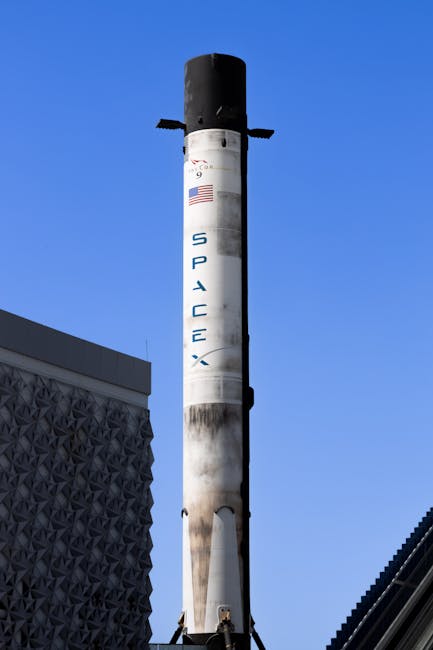Elon Musk’s answer to Wikipedia is now here. On Monday, Musk announced that his own online encyclopedia, Grokipedia, was now live.
According to Musk, the current version of Grokipedia is only “version 0.1” but he claimed that it’s already “better than Wikipedia.”
This Tweet is currently unavailable. It might be loading or has been removed.
Up until a few years ago, Elon Musk frequently shared links to Wikipedia entries on X, then known as Twitter. However, since he has taken a turn into far-right politics, Musk has become a major critic of Wikipedia, claiming it has a left-wing bias. He has recently started referring to the site as “Wokipedia” and has made calls to “defund” or stop donating to Wikimedia, the nonprofit that runs the platform.
However, for supposedly being better than Wikipedia, Musk’s Grokipedia appears to rip off a significant amount of content from it.
For example, as The Verge noticed, the Grokipedia entry for the Sony video game console PlayStation 5 is a complete word-for-word copy of the Wikipedia entry for PlayStation 5. Musk’s Grokipedia even copied and pasted the exact same table of contents for the different sections of the PlayStation 5 entry. Even the cited external sources are the same, although it appears Grokipedia has changed the order of how they’re listed.
Left:
Credit: Wikipedia
Right:
Credit: Grokipedia / Wikipedia
Grokipedia did add one thing to its PlayStation 5 entry that’s not found on the Wikipedia version. A disclaimer at the very bottom of the page, which admits that it “adapted” the content from Wikipedia.
“The content is adapted from Wikipedia, licensed under Creative Commons Attribution-ShareAlike 4.0 License,” it reads. Because Wikipedia content is published under the Creative Commons public license, Grokipedia can republish its content under certain circumstances.
Mashable Light Speed
The copying problem appears to be extensive. We used the plagiarism detection service Copyscape to check the Grokipedia entry for the Titanic, and Copyscape found that 18 percent of the page, or about 3,600 words, were copied word-for-word from Wikipedia. At the top of Grokipedia’s entry, it contains this notice: “Fact-checked by Grok yesterday.”
Elon musk’s Grokipedia is Here – A Lot of It is Just Copied Directly from Wikipedia
What is Grokipedia? A New AI-Driven Encyclopedia
Elon Musk, the technology entrepreneur known for leading innovative ventures, has launched Grokipedia-a new online encyclopedia powered by artificial intelligence. Developed by Musk’s xAI company,Grokipedia aims to revolutionize the way information is created,edited,and fact-checked on the web. Unlike conventional encyclopedias relying on human editors, Grokipedia leverages the Grok language model to generate and update entries autonomously.
This AI-centric platform officially went live on October 27, 2025, positioning itself as a competitor and choice to Wikipedia. Musk has framed Grokipedia as a response to what he perceives as ideological bias in the content of Wikipedia, thus targeting users seeking allegedly “woke”-free information sources.
Why does Grokipedia Copy so Much content from Wikipedia?
While Grokipedia presents itself as an AI-powered encyclopedia, a notable portion of its entries are directly derived or copied from Wikipedia articles.Here are the key reasons and implications:
- Content Foundation: Wikipedia is the largest open-source encyclopedia, which makes it a natural and rich information dataset for AI training and content seeding.
- Creative Commons Licensing: Wikipedia’s licensing model (Creative Commons Attribution-ShareAlike) permits reuse of content with proper attribution, enabling Grokipedia to incorporate Wikipedia text legally.
- Model Training Efficiency: grokipedia’s grok language model uses Wikipedia articles to train its AI, enabling rapid generation of factual and encyclopedic content with a proven structure.
- Initial Catalog Expansion: To quickly launch a comprehensive platform, copying Wikipedia content helps Grokipedia populate a broad encyclopedia with millions of topics from the get-go.
Attribution and Licensing Notice
Despite the replication,Grokipedia includes licensing notices acknowledging wikipedia as the source. This transparency fulfills copyright requirements and keeps the project compliant with open content rules, but critics argue that simply replicating Wikipedia diminishes originality.
How Grokipedia Works: AI-Powered Article Creation and Editing
The backbone of Grokipedia is the Grok language model, an artificial intelligence system developed for natural language processing tasks. Here’s how it shapes Grokipedia content:
- Automated Content Generation: Grok can create new articles or enhance existing ones by analyzing and synthesizing vast amounts of data.
- Fact-Checking Capability: It continuously updates and verifies facts across entries, aiming to reduce human error and increase accuracy.
- Bias Mitigation: Musk’s xAI claims grokipedia strives for a more balanced viewpoint, enhancing neutrality beyond crowdsourced edits on Wikipedia.
Comparison Table: Grokipedia vs Wikipedia
| Aspect | Grokipedia | Wikipedia |
|---|---|---|
| Content Creation | AI-generated by Grok model | Community-driven by human editors |
| Content Source | Partially copied from Wikipedia + AI synthesis | Original articles from volunteer editors |
| Editing Process | AI-managed and updated automatically | Manual peer review and consensus editing |
| Bias Management | Algorithmically controlled to avoid “woke” bias | Community moderation with varied perspectives |
| Licensing | Creative Commons with Wikipedia attribution | Creative Commons Attribution-ShareAlike |
Benefits of Using Grokipedia for Knowledge Seekers
Despite some controversy over content originality, Grokipedia offers distinct advantages that may appeal to various audiences:
- Faster Updates: Grokipedia’s AI model can refresh information at high speed, reducing delays caused by human editorial processes.
- reduced Human Bias: Through algorithmic moderation, the platform aims to provide more politically neutral articles.
- Ease of Access: the intuitive AI interface helps users quickly find summarized answers without sifting through extensive forum discussions.
- Cross-Device Compatibility: Grokipedia is designed for optimal performance across diverse devices, including mobile and desktop.
Addressing Controversies: Is Copying Wikipedia Content a Drawback?
Critics of Grokipedia have pointed out that as much of its content is copied from Wikipedia, this raises questions about originality, content quality, and long-term viability:
- Originality Concerns: Scrutiny over direct copying may discourage users seeking fresh or unique perspectives.
- Reliability Challenges: If AI models inherit errors or biases from Wikipedia, these could be propagated rather than corrected.
- Community Exclusion: Unlike Wikipedia’s open editing,Grokipedia’s AI-driven control limits human volunteer involvement.
However, proponents assert that the AI’s dynamic fact-checking might identify mistakes faster than conventional models, fueling a paradigm shift in knowledge curation.
First-Hand User Experience: Exploring Grokipedia
Early users report a mixed experience, praising the convenience and modern UI but noticing familiar Wikipedia-like content. Here are some common observations:
- Content Similarity: Many articles mirror Wikipedia to the point of near-verbatim repetition, complete with licensing references.
- AI Fluidity: Some entries demonstrate AI-generated summaries or enhanced explanations, offering fresh takes in certain topics.
- Search Accuracy: Grokipedia’s search engine is responsive, often surfacing relevant AI-synthesized results quickly.
- political Tone: Users sensitive to ideological framing note a perceptible conservative slant compared to Wikipedia.
Practical Tips for Using Grokipedia Effectively
To get the most out of Grokipedia, consider these practical recommendations:
- Cross-Verify Facts: Always cross-reference controversial or critical information with other trusted sources, including Wikipedia itself.
- Check Licensing Notices: Notice citations indicating content derived from Wikipedia to understand the source provenance.
- use AI-Generated Summaries: Leverage Grokipedia’s AI-written concise summaries for speedy knowledge boosts but dive deeper if needed.
- Stay Updated: Follow Grokipedia announcements for continuous platform improvements and added features.
SEO Keywords and their Natural Integration in Grokipedia
To optimize Grokipedia and similar platforms for search engines, key phrases such as “Elon Musk Grokipedia,” “AI-written encyclopedia,” “Wikipedia copy,” “Grok language model,” and “AI fact-checking” are strategically included in content. This helps Grokipedia rank for users looking for alternatives to traditional encyclopedias, AI-curated knowledge sources, and Elon Musk’s recent technology projects.
Left:
Credit: Wikipedia
Right:
Credit: Grokipedia / Wikipedia
That suggests that Grokipedia is intended more as a fact-checking tool than a genuine alternative to Wikipedia.
Unlike Wikipedia, which has human editors who volunteer to contribute to the site, Musk’s Grok AI is responsible for the content that gets posted on Grokipedia. And it seems that in many cases, Grok is just scraping Wikipedia entries in their entirety and pasting its contents on Grokipedia’s own site.
Social media users are continuing to discover numerous Grokipedia entries that are lifted directly from the corresponding Wikipedia entries, often with no changes.
The Grokipedia entry for composer Franz Liszt? Plagiarized from Wikipedia. The Grokipedia entry for the Miller Effect? Copied sentence-by-sentence from the Wikipedia article. Grokipedia’s page for the PC-98? Taken from Wikipedia.
One Wikipedia contributor found their own contribution to an entry was copied line-for-line and published on Grokipedia.
This Tweet is currently unavailable. It might be loading or has been removed.
So, how does Grokipedia differ from the supposedly woke Wikipedia?
Some of the more politically charged articles on Grokipedia appear to have been rewritten in order to add a right-leaning bent, but an enormous portion of Musk’s Wikipedia alternative appears to just be Wikipedia itself.


